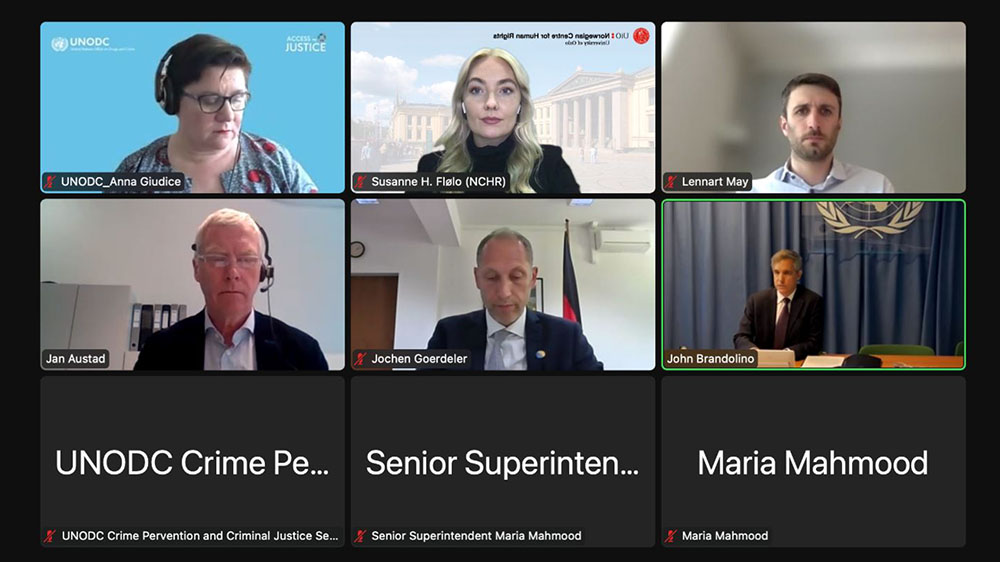Introducing training tools for police investigations
On 16 May, NCHR, in partnership with the Permanent Missions of the Federal Republic of Germany to the United Nations in Vienna, the Permanent Mission of Norway to the International Organisations in Vienna, and the Crime Prevention and Criminal Justice Section, DTA, UNODC, held a side-event concerning practical training tools for efficiency and fairness in criminal investigations under the 31st session of the Commission on Crime Prevention and Criminal Justice.
The purpose of this event was to: 1) introduce investigative interviewing, a non-coercive, efficient, practical, and human rights-compliant tool for conducting interviews of victims, witnesses, and suspects of crime (see Kyoto Declaration and Mendez Principles); and 2) provide the opportunity to present related initiatives in differing countries.
International speakers
Speakers included senior law enforcement and human rights experts from Germany, Norway, Pakistan, and the UNODC, with over forty participants from various countries listening in.
Notably, Maria Mahmood, Director (In-Service Training), National Police Academy, Pakistan, reported promising prospects for the Global eLearning Programme on investigative interviewing developed by NCHR and the UNODC Crime Prevention and Criminal Justice Section Access to Justice team, citing positive feedback from officers participating in the comprehensive eLearning course piloted in March.
Also of particular note was Lennart May’s, Assistant Professor for Legal Psychology, Medical School Berlin, Germany, presentation on the finding that susceptibility to providing false confessions under traditional, confession-focused investigative practices have led to serious miscarriages of justice in Germany, and that more comprehensive implementation of the investigative interviewing method can help to reduce the occurrence of wrongful convictions.
